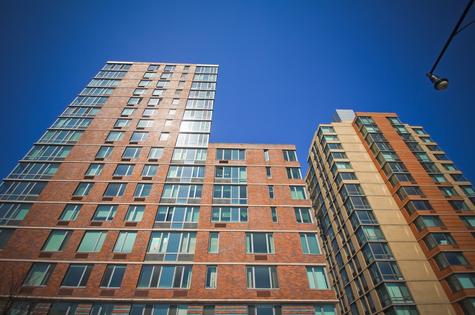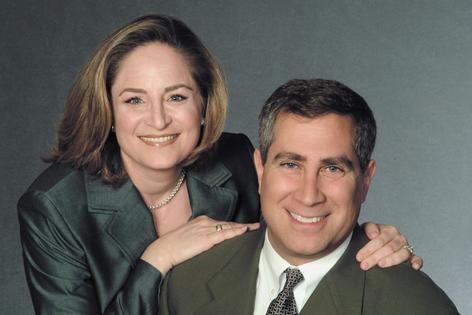New board president seeks honest, transparent approach to association budget
Q: I live in a 30-unit condo association that has very inadequate cash reserves. Prior owners neglected the building’s maintenance for years, leaving the current owners responsible for their neglect.
We usually need to require two extra monthly assessment payments from homeowners each year to simply hobble along until the next catastrophe. The former president was reluctant to raise dues, as he contended that an increase in the assessments would affect resale values of our condominiums.
I became the new president of the condo association last year and felt the way things had been done was dishonest for new unit owners, because the dues listed on the sales sheets did not reflect what was actually paid by the unit owners.
I see two viable remedies to this situation. The first is to raise sufficient funds in order to become financially sound. We’d do this with a special assessment. The other alternative is to raise the monthly association dues to a level that will not only cover what is actually spent each year but contribute to the reserves. The special assessment would require 75% of the owners to vote for this change. It might be a hard sell.
Either alternative seems more aligned with an honest and transparent approach to our condo budget. Quite honestly, I am afraid the association board could be sued for deliberately misleading potential new owners.
What do you think we should do?
A: You’re on a tough path, but we think it’s the correct move and we commend you in your efforts to align your association’s expenses with the income it receives from the unit owners.
If it helps, you’re not alone. There are literally tens of thousands of associations across the country dealing with exactly the same problem.
There is an inherent conflict between an association’s attempt to keep its assessments low and what it needs to spend to maintain and keep up its property. Many associations hire outside companies to evaluate the condition of the building and then deliver a report on what needs to be done. The report typically includes a set of projections covering the anticipated cost of all of the items that will need to be taken care of over the near and longer-term.
The companies that prepare reserve studies (also known as reserve reports) also provide the association with an estimated amount of cash the association needs to have on hand to pay for future expenses. With this information, the board can then calculate what the assessments need to be to cover the expected expenses. It can also help the board determine whether a special assessment is needed to fund future repairs.
Perhaps you’ve already commissioned such a report. If not, this is a helpful step in documenting the current physical condition of the property and the cost to remedy any outstanding issues. The next step is conveying that information to unit owners, along with the various possible remedies, along with a projected timetable for the repairs and how much it’s going to cost.
These reserve studies can be difficult to read for most boards and unit owners. The financial projections covering the work that needs to be done are often devastating. Depending on the age of the building and what maintenance, repairs and replacements the building has undertaken in the past, the amount required to pay the upcoming maintenance bills can be massive.
We wrote about the amount associations need to have on hand several years ago. Florida is a perfect example, since it has so many buildings that held off on repairs and had underfunded reserves. A few years ago, the Florida legislature passed a law that requires certain older buildings to have what’s needed in reserves all funded now. It led to many buildings passing monumental special assessments. In Florida, some condo owners have received special assessments for more than $100,000 or seen their monthly assessments double or triple in order to cover the work. The sales price of units in condo buildings that are at least 30 years old has, in some cases, collapsed, leaving residents broke and stuck.
As the country’s housing stock ages, maintenance has to be done. If not, deferred maintenance eventually catches up with every building. You mentioned that your building doesn’t have much in reserves and you fear that you go from one catastrophe to another. You suspect you’re on the brink of a much bigger issue.
So, what should you do? Well, if you know what repairs, replacements and maintenance needs to be done to your building and have an idea of what those costs will be, you’re going to have to bite the bullet and raise the assessments to build up your reserves. You may also need to have a special assessment to bulk up on the reserves already on hand. Or, you can look into setting up a line of credit that the building can tap in case of a true emergency.
The next step is communicating what’s happening in a clear, concise and easy-to-understand way. You know instinctively these proposals will likely not go over well with your fellow unit owners. Condominium owners don’t like to be told that they have to put up money to repair common areas, but that’s the nature of communal living.
The truth is, many homeowners simply don’t have the funds to pay large special assessments. They may have to put up their units for sale. While that’s unfortunate, if you don’t take care of the property, it will deteriorate and the value will decline.
There’s no question you have to act. The only question is when. The earlier the building starts properly funding its ongoing expenses and reserves, the better off it will be. To help your fellow owners understand what’s happening, consider attaching a letter that lays out the case for why assessments are being raised and by how much. If you’re concerned that some owners won’t be able to afford the increase, offer to meet with them privately to see if there’s anything that can be done to help make this necessary increase more palatable in the short term.
Good luck.
========
(Ilyce Glink is the author of “100 Questions Every First-Time Home Buyer Should Ask (4th Edition).” She writes the Love, Money + Real Estate Newsletter, available at Glink.Substack.com. Samuel J. Tamkin is a Chicago-based real estate attorney. Contact Ilyce and Sam through her website, ThinkGlink.com.)
©2025 Ilyce R. Glink and Samuel J. Tamkin. Distributed by Tribune Content Agency, LLC.

































Comments